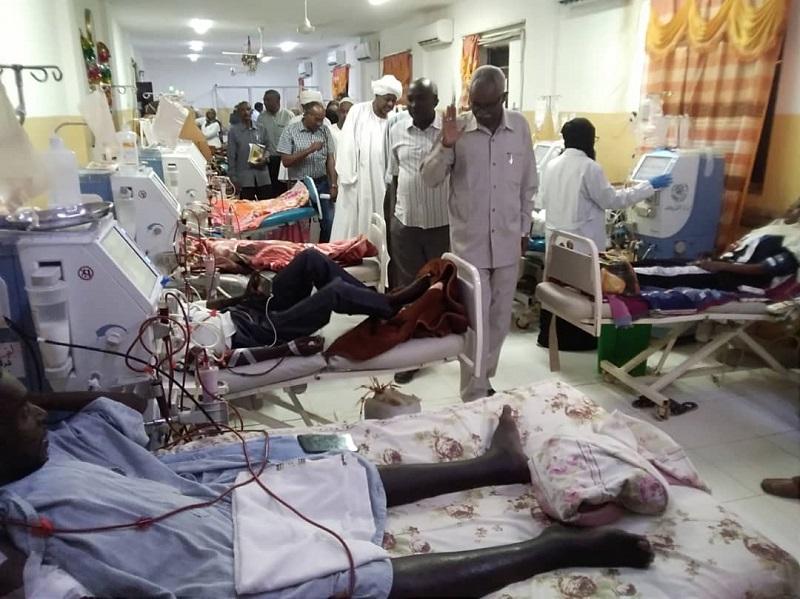Two deaths amidst ‘surge in complications’ at strained Sudan dialysis centres

War forced kidney patients to travel to Kosti in White Nile state for dialysis treatment, May 2023 (File photo: SUNA)
Two kidney failure patients died, alongside a worrying tally of at least 12 patients requiring immediate intensive care due to an alarming series of dialysis machine breakdowns in Ed Damer, capital of the River Nile state, on Wednesday.
The state’s pair of dedicated dialysis centres witnessed a distressing surge in incidents earlier this week, stemming from a critical shortage of essential dialysis materials, casting a detrimental impact on the wellbeing of a reported 155 patients reliant on these centres in the region.
Dialysis patient Omar El Mamoun told Radio Dabanga that the state’s dialysis centres in El Kitab and in Ed Damer experienced a substantial rise in patient admissions in the wake of the conflict. He said that Ed Damer’s centre recently suspended treatment services on two occasions, due to the “accumulation of sediment” in the water used for dialysis machines He attributed this issue to their reliance on the “Nile as their primary water source”.
El Mamoun also added that the hours for dialysis sessions were halved from “eight hours per week to four”, resulting in various complications for patients contending with the debilitating illness.
Lamenting about the various complications as a result of the reduced sessions, he said that patients were now having to “purchase their own dialysis solutions to use from commercial pharmacies”.
Last week, Radio Dabanga reported that Port Sudan’s fragile healthcare system confronted a crisis with the passing of a 36-year-old kidney failure patient, a result of a power outage due to insufficient fuel for the generator providing electricity to the dialysis centre.
Mousa Takrawi, a patient at Port Sudan’s dialysis centre, mourned the loss while attributing the “growing fuel crisis and the shortage of dialysis solutions” as the primary concerns afflicting fellow patients undergoing treatment.
Healthcare complaints
In a survey conducted last week by Radio Dabanga concerning the availability of medicine in North Darfur’s capital of El Fasher, it found that many were worried about the dearth of malaria medications.
Maymouna Ismail, a survey participant, recounted her visit to the hospital with her three children, reporting a distressing shortage of malaria medication. She states that the malaria medicine Coartem, is fetching exorbitant “prices of up to SDG7,000 on the parallel market”.
Ismail said that she found herself unable to afford it due to her “unpaid salary stretching over five months”. Issuing an appeal to the Ministry of Health, Ismail implored for the provision of malaria medicines.
Other respondents also said they were enduring hardships in obtaining basic necessities such as food, water, and healthcare in El Fasher.








 and then
and then